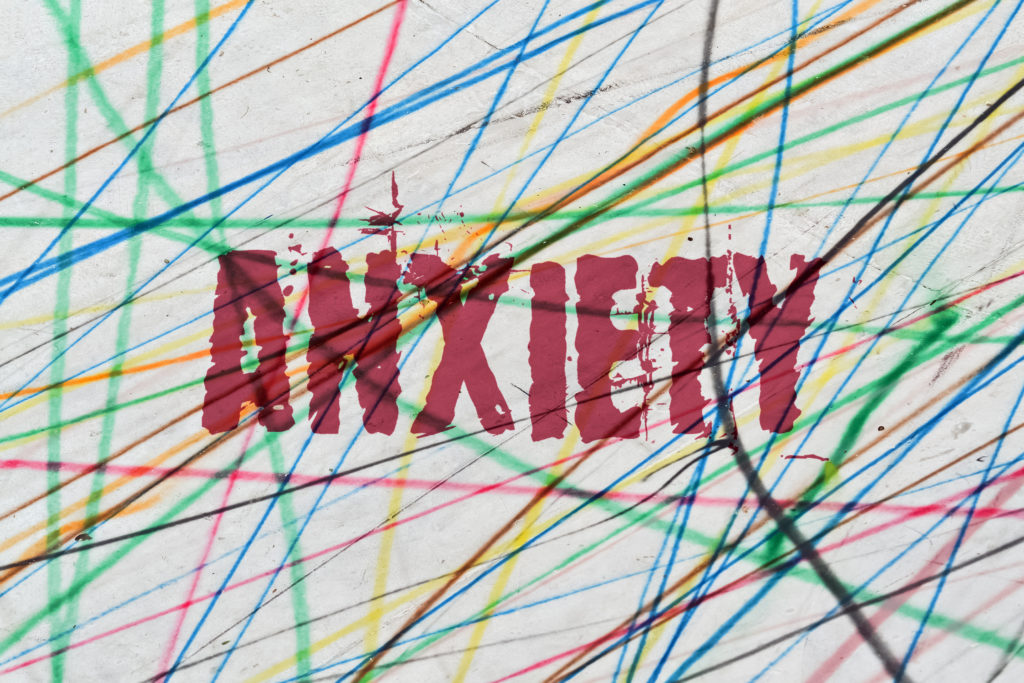
By Jelena Kecmanovic
If you’re feeling anxious, that’s understandable — and you are not alone. In late March, even before the coronavirus had reached the frightening benchmark of infecting more than 1 million people worldwide, 77 percent of American women and 61 percent of men were reporting personal stress, according to a Washington Post-ABC News poll. Sixty-nine percent of Americans were worried about themselves or their family members becoming infected, and a majority thought the economic impact would be worse or the same as the 2008 Great Recession.
As a psychologist, I’m seeing firsthand how the pandemic is increasing anxiety among my patients and others. A recent American Psychiatric Association poll found that more than one-third of Americans think the coronavirus crisis is seriously affecting their psychological health. And calls and texts to mental health hotlines have dramatically increased.
“It’s very hard to focus these days, especially when what’s needed is sustained concentration for a bigger project. I have to separate work into discrete tasks,” said Bonnie Lawhorn, a nonprofit marketing and communication director from Gaithersburg, Md.
Most adults recognize persistent worry and physical sensations such as increased heart rate, sweating, gastrointestinal distress, muscle tension and throat tightness as manifestations of anxiety. But they might not understand the ways anxiety fuels other problems. “People often don’t realize that their difficulties with focus, memory, sleep and relationships can all be related to anxiety,” said Amelia Aldao, clinical psychologist and founder of Together CBT in New York City.
Let’s look at four problems that can be caused or exacerbated by anxiety, and steps you can take to address those issues.
Sleeplessness

Most of us are aware that anxiety leads to insomnia and other sleep problems. “People can experience a range of sleep problems when they’re anxious: difficulty falling asleep, middle-of-the-night awakenings with mind racing and ruminating, and having a hard time falling back asleep,” said Jill Stoddard, a clinical psychologist and the director of the Center for Stress and Anxiety Management in San Diego. In a cruel cycle, the less sleep we get, the stronger our anxiety can become.
“When I wake up at 2 or 3 a.m., my mind starts spinning into covid anxiety, then work anxiety, then covid again. It’s very frustrating,” Lawhorn said.
The good news is that “focusing on improving sleep can make both sleep and anxiety better,” said Brandon Peters, a neurologist and sleep medicine doctor in Seattle and the author of “Sleep Through Insomnia.” He recommends maintaining a consistent bedtime, limiting caffeine and alcohol intake, removing visible alarm clocks, exercising and getting at least some exposure to daylight each day, if possible.
Studies have also shown that keeping your bedroom cool, dark and quiet, as well as staying off screens and practicing mindfulness before bedtime can promote good sleep. As we deal with the coronavirus pandemic, it is even more important not to be exposed to anxiety-provoking news as we are winding down. I recommend at least one device-free hour before bed. And if you need to do something soothing during this disquieting time, try eating a small complex carbohydrate snack, such as a few whole-wheat crackers or half a bagel, in the hour before bedtime. That will also help you sleep better.
Difficulty focusing

Humans have evolved to focus their attention on a threat — that’s how our ancestors survived dangers in their environment. Because the coronavirus threatens our health, livelihoods and way of life, we are consumed by reading and watching news about it and by thinking about ways to protect ourselves from it.
The problem is that we might also need to be teleworking, home-schooling our kids and attending virtual meetings. “The brain can do only so much. When our attention is absorbed by coronavirus, we will have a harder time concentrating on anything else we are trying to do in the moment,” said Jonathan Abramowitz, a professor of clinical psychology at the University of North Carolina.
To improve your concentration, start by reducing your tasks to the most essential ones. “Each evening, list the things that need to be done the next day, and rank them by importance and urgency,” Aldao said. Then, schedule specific times when you will do the most important and urgent chores, making sure to give yourself breaks about every 45 minutes. Be kind to yourself, accepting that it is completely normal for our functioning to be compromised during this stressful time.
Limit your consumption of news — including social media — to two to three pre-scheduled times a day, not to cumulatively exceed one hour. When you find yourself struggling with an urge to check the news while you’re doing something else, notice where you feel that urge in your body, and note what thoughts are showing up. Then see if you can allow them to be there for a while, delaying your action for at least 10 minutes. You will notice that the urge lessens in intensity with time and eventually goes away. This process is called “surfing the urge.” If 10 minutes is too long, start with two minutes and increase over time. The more you are able to “sit” with the urge without acting on it, the better you will be at staying on task.
Forgetfulness

Many of us are also having difficulty remembering and managing relevant information, such as all the steps required for our kids’ online learning or the important points from a recent work conversation. These are tasks that require what psychologists call working memory, and a 2016 research review found that anxiety adversely affects such memory. “Anything that relaxes you will also help with memory, as relaxation engages the parasympathetic nervous system,” said Aleksandra Parpura, a gerontologist and the founder of Aging Perspectives in Chevy Chase, Md. Good examples of relaxation activities include yoga, mindfulness, exercise and spending time in nature, if possible.
We can also implement strategies we know work for people with existing memory impairments. “Doing activities that are inherently engaging and focusing for a given person are particularly helpful,” Parpura said. So, if you are a fan of crossword puzzles, Sudoku, crafts, video games or playing the piano, make sure to find some time to devote to them now.
Increased irritability and anger








